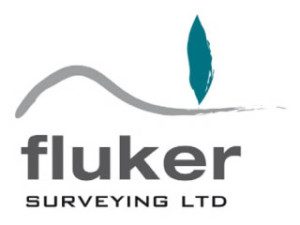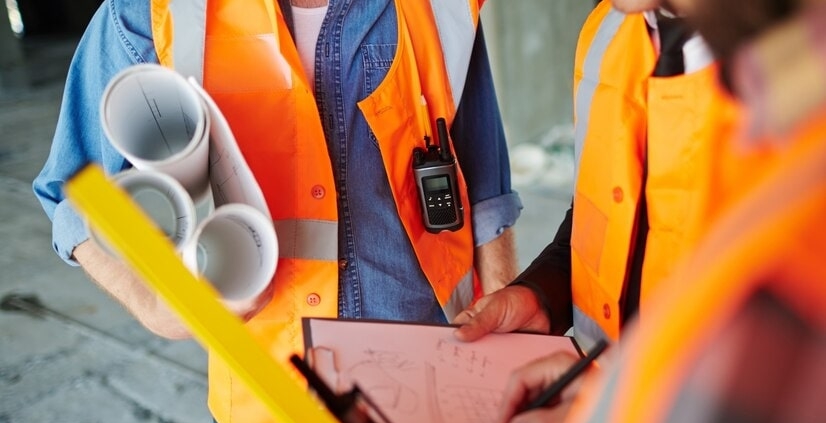Site Surveys in Construction: Key Steps to a Successful Project
When starting a construction project, the road to success begins long before the first brick is laid. It starts with a comprehensive survey, as site surveys in construction lay the groundwork for a successful project. Site surveys are crucial in ensuring that construction projects are executed efficiently, safely and within budget.
Why Surveying Is Such A Vital Part Of Construction
Here are just a few reasons why site surveys are important for any kind of construction project:
Identifying Potential Issues. Site surveys in construction allow for a thorough assessment of the site, helping to identify any potential challenges or issues that may impact the project. It can be rather difficult for the untrained eye to spot potential hazards or risky areas, but a skilled surveyor can analyse your plot of land and find where you should be wary.
This is important because building on hazardous land or not fully understanding your property can lead to project delays, dangerous mistakes and injuries. By understanding potential issues with your land, you can act accordingly to ensure your final structure is strong and stable.
Ensuring Compliance. Skilled surveyors help to ensure that your project complies with New Zealand’s regulations, such as zoning ordinances, building codes and environmental requirements. Surveyors can also conduct boundary surveys, which help to accurately define the boundaries of your property so you can avoid encroaching on your neighbour’s properties.
Optimising Design And Layout. Site surveys in construction provide valuable insights into the ideal design and layout of the construction project. By accurately mapping the site’s dimensions, boundaries and existing features, you and your architectural team can figure out the best way to design and construct your new structure.
Budgeting And Planning. Site surveys are essential in budgeting and project planning as they provide accurate data and estimates for cost analysis, resource allocation and scheduling. By conducting a thorough survey upfront, you can make informed decisions, predict costs and timelines and develop realistic project plans that align with your goals and your budget. It’s important to use your funds and resources carefully because being reckless can lead to higher costs, project delays and frustration.
Key Steps To A Successful Site Survey
Site surveys in construction are an essential step, but it’s not enough to simply have one conducted; you also need to make sure your survey is conducted well and by qualified professionals. Here are a few steps to consider:
Define Your Project’s Objectives. Before conducting a site survey, clearly define the objectives and scope of the project. Identify specific information and data that need to be collected, such as property boundaries, topographic features, utility locations and environmental considerations.
Work With A Professional Surveyor. Surveying isn’t a simple task, so you’ll need to work with an experienced surveying company if you want your data to be accurate and useful. Search for a company with plenty of experience with site surveys in construction, and make sure you do your research before hiring them. Ask about their qualifications, their process and their specialised services.
Conduct Fieldwork And Data Collection. Once you’ve come to an agreement and hired your surveyors, it’s time for them to do what they do best. They’ll conduct fieldwork and gather accurate data and measurements of the construction site.
Analyse And Interpret The Data. Once all necessary data is collected, your surveyor will analyse the data and prepare detailed survey reports, maps and drawings to help you further understand your land. These documents provide valuable insights into your property’s conditions, constraints and opportunities.
Coordinate With Your Design And Engineering Teams. Using the information gathered, you can work with your designers, engineers, architects and anyone else involved in the design and build process to alter your future structure’s design if needed. Take care to address any risks found by your surveyor, and make sure your structure is designed with your property’s specifications in mind.
Address Regulatory Requirements. Ensure your project complies with all relevant regulatory requirements, permits and approvals. Work closely with your surveyor to address any issues or concerns identified during the site survey, such as zoning setbacks, environmental regulations or utility easements.
Monitor And Update As Needed. Throughout the construction process, continue to monitor the site conditions and make any necessary updates or adjustments based on changing circumstances. Regular site inspections and surveys can help identify any changes from the original plans and ensure that the project stays on track.
Making The Most Of Site Surveys In Construction
As you can see, site surveys are vital to maximise your chances of success and ensure your incredible new building is strong and stable. The right surveyors can help you achieve the results you want, and at Fluker Surveying, we aim to be the right surveyors for you. With more than 30 years of experience in Auckland, we’d be thrilled to help you with your exciting project.
To learn more, feel free to give us a call on 09 427 0003.
Get all the data you need with our professional surveyors.



